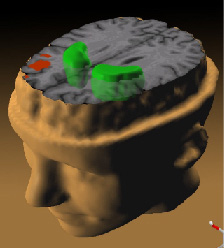Women who go severely hungry during early pregnancy face twice the normal risk of having a child who develops schizophrenia in adulthood, shows a study of the prevalence of the personality disorder among people who were born in China before, during, and after a 2-year famine that began in 1959.
The results confirm observations from a famine in Holland during the winter of 1944-1945. The high rate of schizophrenia associated with the Dutch famine, caused by a Nazi blockade, could have been explained by food shortage or other factors. For example, many starving Dutch people ate tulip bulbs, which might contain some neurotoxin.
The Chinese famine followed abrupt changes in agricultural practices instituted by the Communist government and, except for the scarcity of food, shared few similarities with the Dutch crisis. Malnutrition, therefore, appears to explain the increased incidence of schizophrenia in both famines, says Richard Neugebauer of the New York State Psychiatric Institute in New York City, who has studied the Dutch famine.
In the new research, David St. Clair of the University of Aberdeen in Scotland and his collaborators analyzed records from 1956 to 1965 of births and deaths in and around Wuhu, China. The investigators also looked for diagnoses of schizophrenia in hospital records covering 1971 to 2001. The study's long follow-up period enabled the researchers to identify people who developed schizophrenia even as adults.
They found that of the children born in 1960 and 1961 about 2 percent became schizophrenic by age 40 or 41. Just under 1 percent of the children born during other years of the study developed the disorder by 2001--a rate that's consistent with worldwide data suggesting an overall 1 percent incidence of schizophrenia.
The data support the prevailing notion that early pregnancy is a crucial period for famine-associated schizophrenia, the researchers report in the Aug. 3 Journal of the American Medical Association. Children conceived in Wuhu in the months before the famine began, but born during the famine, avoided excess risk of schizophrenia. However, children conceived toward the end of the famine and born after it had ended faced increased jeopardy.
Neither the Dutch nor the Chinese study indicates how prenatal malnutrition contributes to schizophrenia. Calorie shortage or lack of some specific nutrient could be responsible. There's "suggestive, provocative evidence" that folate deficiency elevates risk, Neugebauer says, so supplements of that vitamin might prevent delayed epidemics of schizophrenia in famine-affected regions. "Prevention is a real possibility in the context of prenatal care," he says.
COPYRIGHT 2005 Science Service, Inc.
COPYRIGHT 2005 Gale Group




